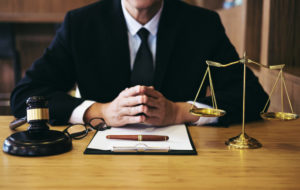While recreational water sports are one of America’s primary ways to have fun and stay cool, especially in the summer months, the water can be unforgiving. In 2015, there were 4,158 boating and jet ski accidents, resulting in 2613 serious injuries and 626 deaths. Nearly two-thirds of these deaths are the result of drowning, and most drownings are due to the refusal to wear a life jacket, or uneducated, untrained watercraft drivers and passengers. Over 80 percent of boat operators who have been involved in serious boating accidents have never completed a boating safety course and have no formal training in boat operation.
Why the State of Florida is a Common Place for Boating and Jet Ski Accidents
The Sunshine states leads the United States in the number of boating accidents and fatalities, according to the Florida Fish and Wildlife Conservation Commission. On average, the state sees 750 boating accidents (704 in 2012), and between 60 and 70 fatalities. Those numbers are not entirely surprising, considering water sports are year-round activities in the state of Florida, and that the state has the highest number of boat registrations in the country. Further statistics on boating and jet ski accidents in Florida include:
- Of all the boating accidents in 2012 in Florida, 44 percent involved a collision—either with another vessel or with a fixed object.
- Carelessness and machinery failure accounted for 164 of the boating accidents in 2012 in the state.
- Twenty-four boating accidents in Florida in 2012 were the result of impairment.
- The #1 cause of fatal boating accidents in Florida are falls overboard—falls overboard have been the leading factor in boating fatalities since 2003.
- In 2012 in the state of Florida, jet skis were involved in 132 accidents, and in 42 of those accidents, multiple jet skis were involved.
- Of those jet skis involved in an accident, 38 percent were rented, and 28 percent were borrowed.
- Monroe County takes the top slot for most boating and jet ski accidents, followed by Miami-Dade, Pinellas and Palm Beach.

Proving Liability in Your Boat or Jet Ski Accident
Depending on the circumstances surrounding your boating accident, both a civil lawsuit as well as criminal charges could be brought against another boater—criminal charges for the driver of a jet ski or boat who acted recklessly, was under the influence or who exhibited gross negligence in their behavior. Negligence is the most common cause of action under which boating accident lawsuits can be filed; if the operator of the vessel which caused your accident failed to follow prescribed boating rules, passed another vessel improperly, failed to have proper safety equipment on board or was inebriated while boating, he or she may be found negligent. In order to qualify for damages following your accident, your injuries must be directly linked to the boating accident, therefore it can be extremely beneficial to collect any evidence available at the time of the accident.
Gathering witness statements and contact information, photographs of the scene of the accident and law enforcement reports can be extremely helpful for your attorney once he or she begins putting your case together. Liability for your boating accident may also hinge on the negligent individual’s status on the vessel (was the boat operator an employee, a guest or an owner of the boat?). The precise location of the accident will also have bearing on how the case will proceed. Accidents which occur close to a Florida shoreline will probably fall under Florida and federal laws, while accidents which occur further out from the shore could fall under maritime laws.
 We’re here to serve you. Our phones are open 24 hours a day.
We’re here to serve you. Our phones are open 24 hours a day. Most Common Types of Boating Accident Claims
There are a number of different types of claims your boating accident may fall under, including:
- A boating operator may be considered negligent when he or she was operating the boat at an unsafe high speed, navigating in adverse weather conditions, hitting big waves or wakes at excessive speeds, collided with other boats or fixed objects, failed to follow the “rules of the road,” or operated the boat with too many people on board.
- Boating under the influence is a separate issue from that of negligence; Florida state law prohibits the operation of a vessel while under the influence of drugs or alcohol. An individual suspected of operating a vessel while under the influence must submit to a sobriety test; refusal to submit to such a test can result in the revocation of both boating and driving privileges.
- Reckless or careless operation of a vessel means the boat operator drove the vessel with “willful disregard for the safety of persons or property.” If the boat operator is cited for reckless operation of a boat, he or she will face a first-degree criminal misdemeanor.
- Workers who are injured while on their job aboard a vessel may qualify for recovery under the Jones Act and Longshore claims.
 We’re Florida’s top litigation team with over 75 years of combined experience
We’re Florida’s top litigation team with over 75 years of combined experience Special Rules Applying to Jet Ski Accident Claims
Claims for jet-ski accidents can be even more complex than other personal injury boating cases. Personal watercraft accidents could be subject to the laws of limited liability. This means those injured in a jet-ski accident may not be able to file a lawsuit against certain defendants. According to federal and Florida maritime laws, the owner or renter of a vessel may not be liable for an accident if that accident was due to circumstances beyond their knowledge or control.
Many times, those who rent jet-skis may have signed a waiver which also precludes them from filing a lawsuit for negligence, however if you signed a waiver with the expectation the rental company will fulfill its duty of care, a lawsuit may not be precluded. Further, a signed waiver could be found void if you can prove you were not given adequate pre-rental or pre-ride safety instructions.
 From the initial call to updates on your case status, we are here to get you answers.
From the initial call to updates on your case status, we are here to get you answers. Injuries Associated with Boating and Jet Ski Accidents
Common boating and jet ski injuries include:
- Brain trauma;
- Abrasions;
- Cuts;
- Fractures and broken bones;
- Cuts and bruises;
- Spinal cord injuries;
- Amputations;
- Soft tissue injuries;
- Internal injuries;
- Drownings, and
- Death.
Like motorcyclists, jet ski riders have little to no protection in the event they are hit by a boat. This means many jet ski accidents leave those involved severely injured. A 2002 study found that 17 and 18 year-olds had the highest rate of jet ski injuries, while the Coalition of Parents and Families for Personal Watercraft Safety found that half of all jet ski injuries to children are moderate to severe in nature.
Other Types of Boating Accidents
The most common types of boating accidents include a boat sinking or tipping, multiple boat collisions, boating fires and slip and falls due to a wet, slippery surface. Quite often, especially in the cases of boat collisions and boats which sink, the cause is a reckless or inexperienced boat operator. Boating fires are most often caused by boat malfunctions. Unfortunately, many boating accidents involve the use of alcohol. Boating operators are out having fun with their friends and family members, and while they might never get behind the wheel of a car after drinking, they think nothing of having a few beers and driving a boat. Some studies indicate that alcohol is responsible for up to 25% of all boating fatalities.
Safety Tips to Reduce Boating Accidents
The number one safety tip to remember when boating is to make sure that children and adults alike are wearing a properly fitted personal flotation device. While most parents would never dream of driving without putting their kids into a car seat or seat belt, they are much less vigilant on the water. All boat operators should complete a state-approved recreational boating safety course, and you should never get onto a boat unless you are sure the operator is adequately trained.
Most of us would never think of hopping into a car with a driver who didn’t have a license, but have much less hesitation in getting on a boat with a driver who has had little to no safety training. Ensure that any boat you are on has adequate life-jackets, a loud horn, whistle or bell for emergencies, a working radio to make a distress call, a fire extinguisher and adequate ventilation on gasoline powered boats.
What to Do After a Boating Accident
After any type of boating accident everyone involved must stay in the area until law enforcement arrives. Those who were injured should be transported to the nearest hospital to receive medical treatment. If there were no injuries, then insurance and personal contact information should be exchanged, and the boating accident—regardless of injuries—must be reported to the local authorities.
Maritime law applies to pleasure boating accidents as well as to commercial vessels. A small sailboat is subject to the same laws as an oil supertanker; federal courts have even qualified a jet-ski accident as being subject to maritime law. Because of this, the attorney you choose following a boating accident must have knowledge and experience in maritime law and boating accidents in order to ensure your rights are fully protected.
Getting Help for Your Boating Accident from The Law Place
The attorneys at The Law Place have many years’ experience helping those injured in boating accidents and handling the resulting boating accident claims. Our attorneys have the necessary knowledge of maritime, federal, and Florida state laws pertaining to boating accidents. Because each of these entities have their own regulations regarding boating accidents, building a claim for your damages can be a complex process.
The Law Place attorneys will accurately establish who can be held liable for your accident, and are well-aware of the statutes of limitations which govern the filing of personal injury claims in the state of Florida. You may be entitled to damages for your injuries, your lost wages, pain and suffering, and, in certain cases, punitive damages when willful or malicious negligence is a factor. As a victim of a boating or jet ski accident, our attorneys may be able to file a lawsuit to recover compensation for your injuries and property damage. Call The Law Place at 941-444-4444. “We are here for you.”




